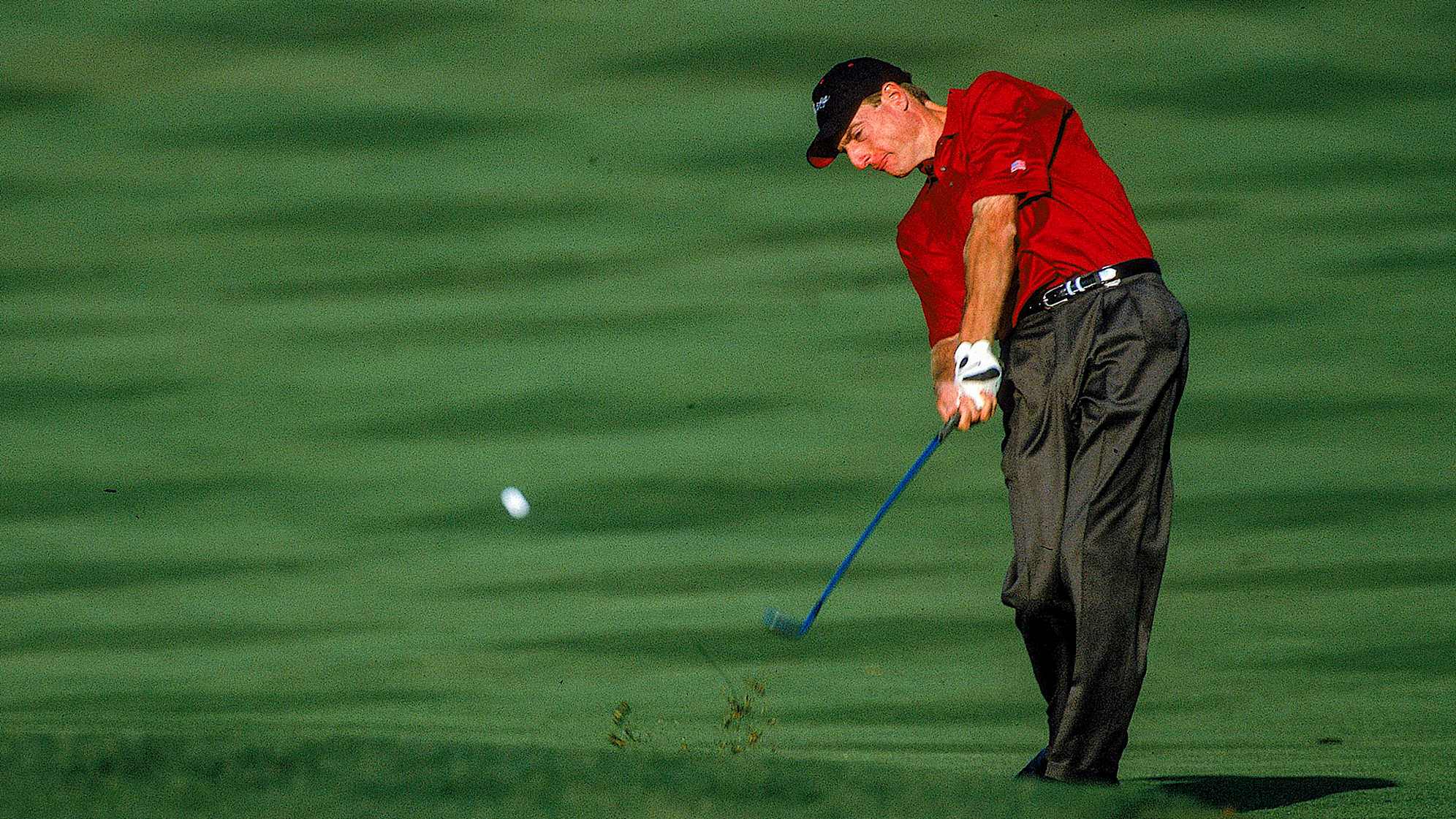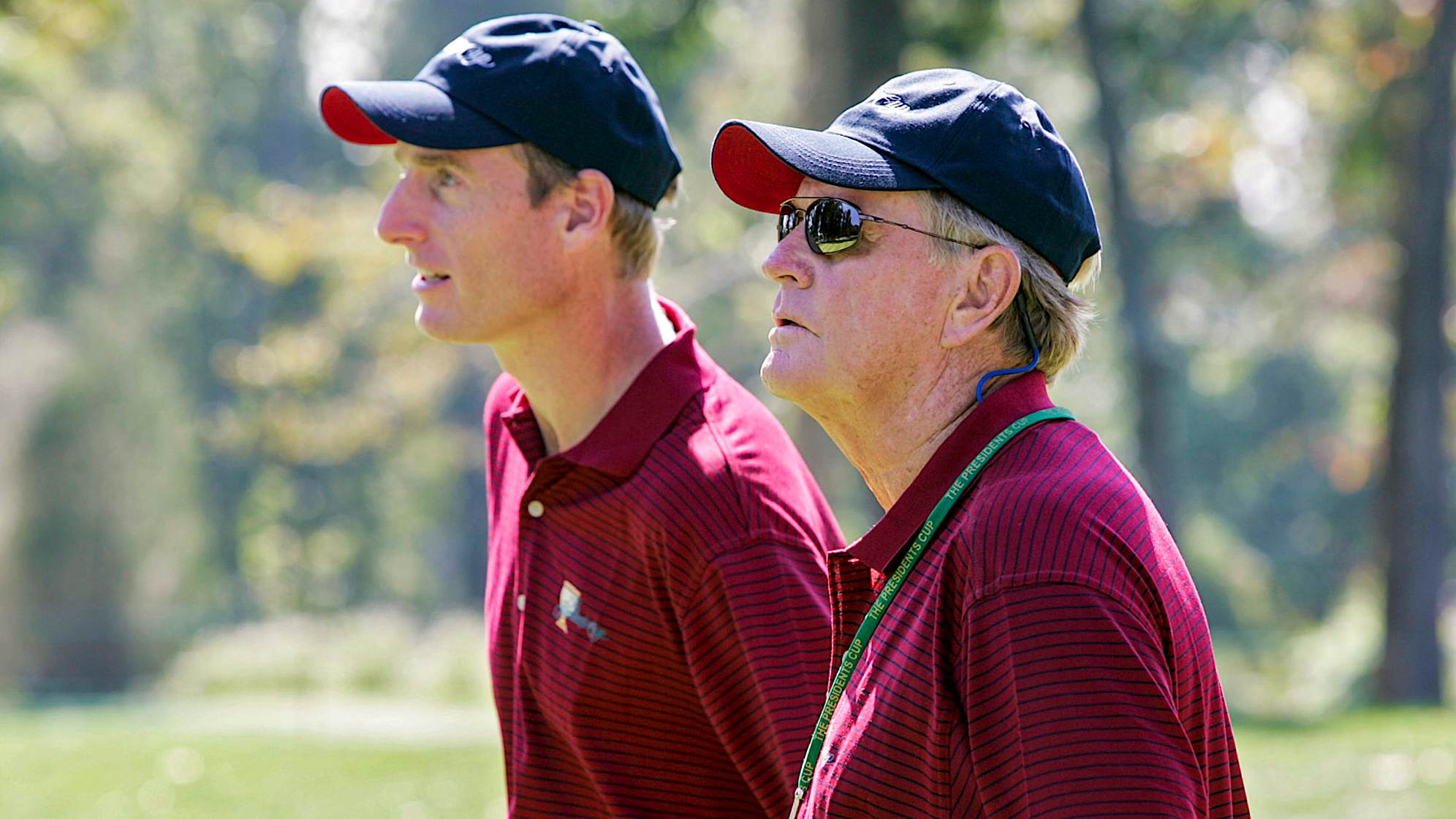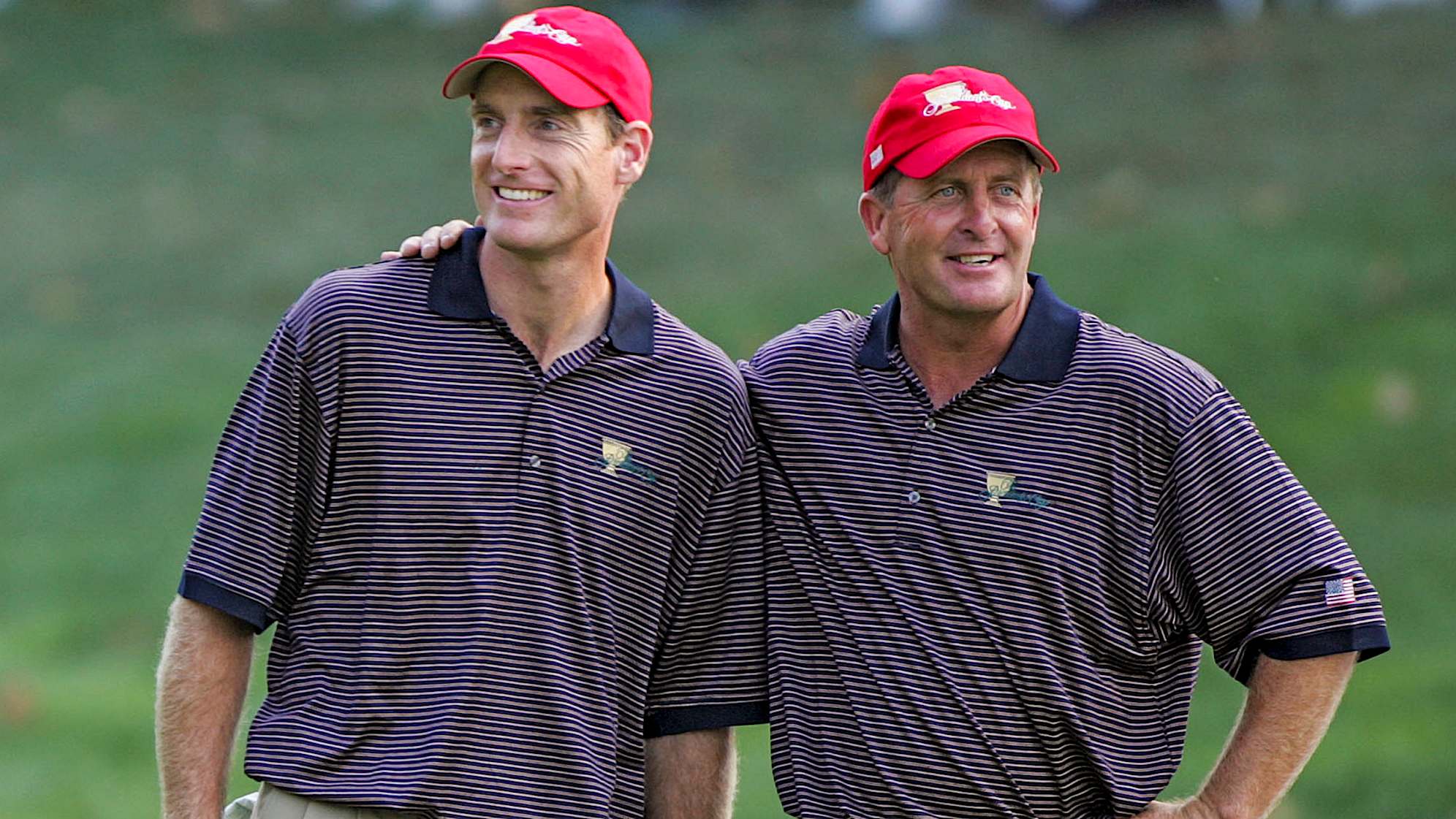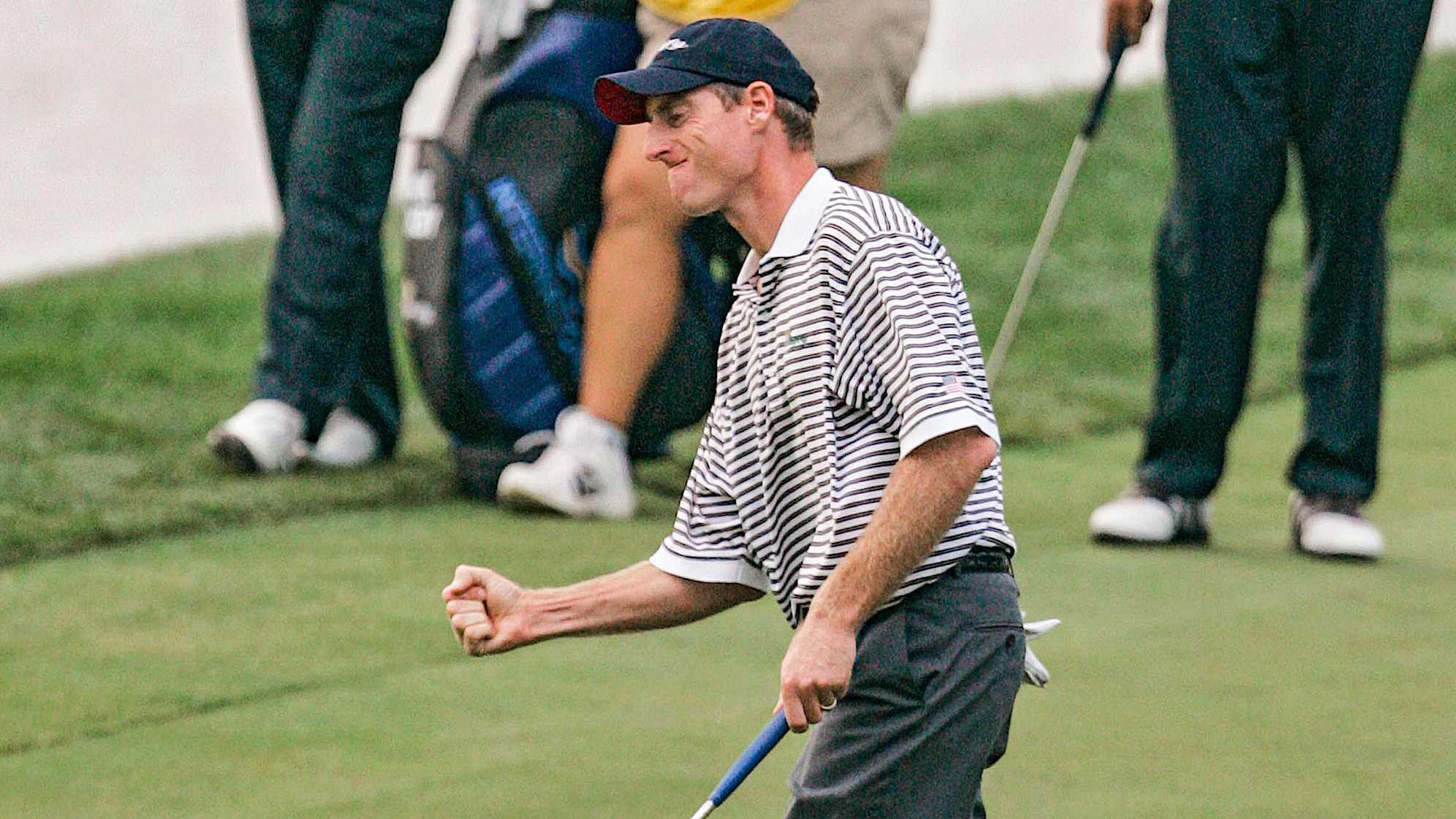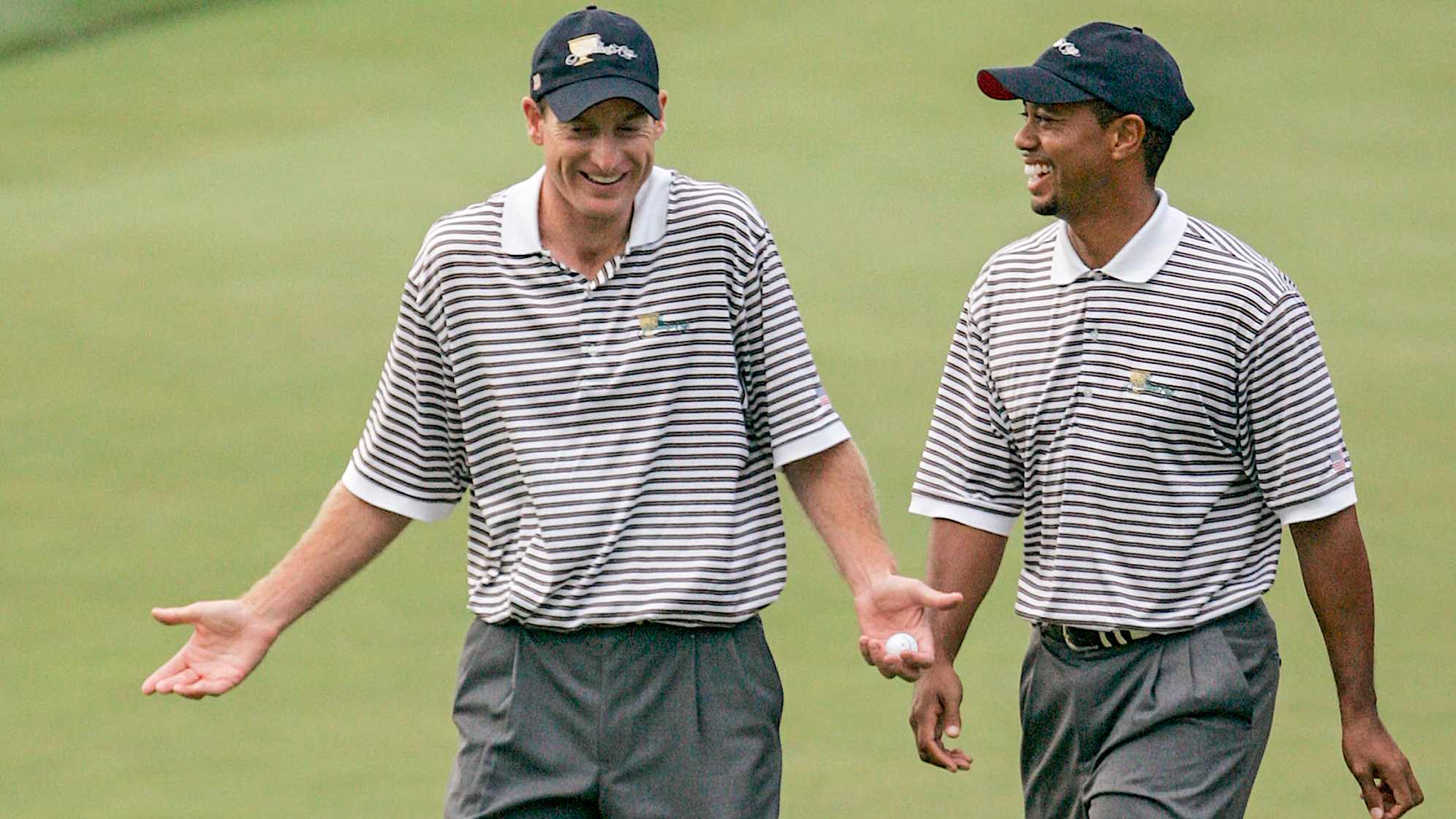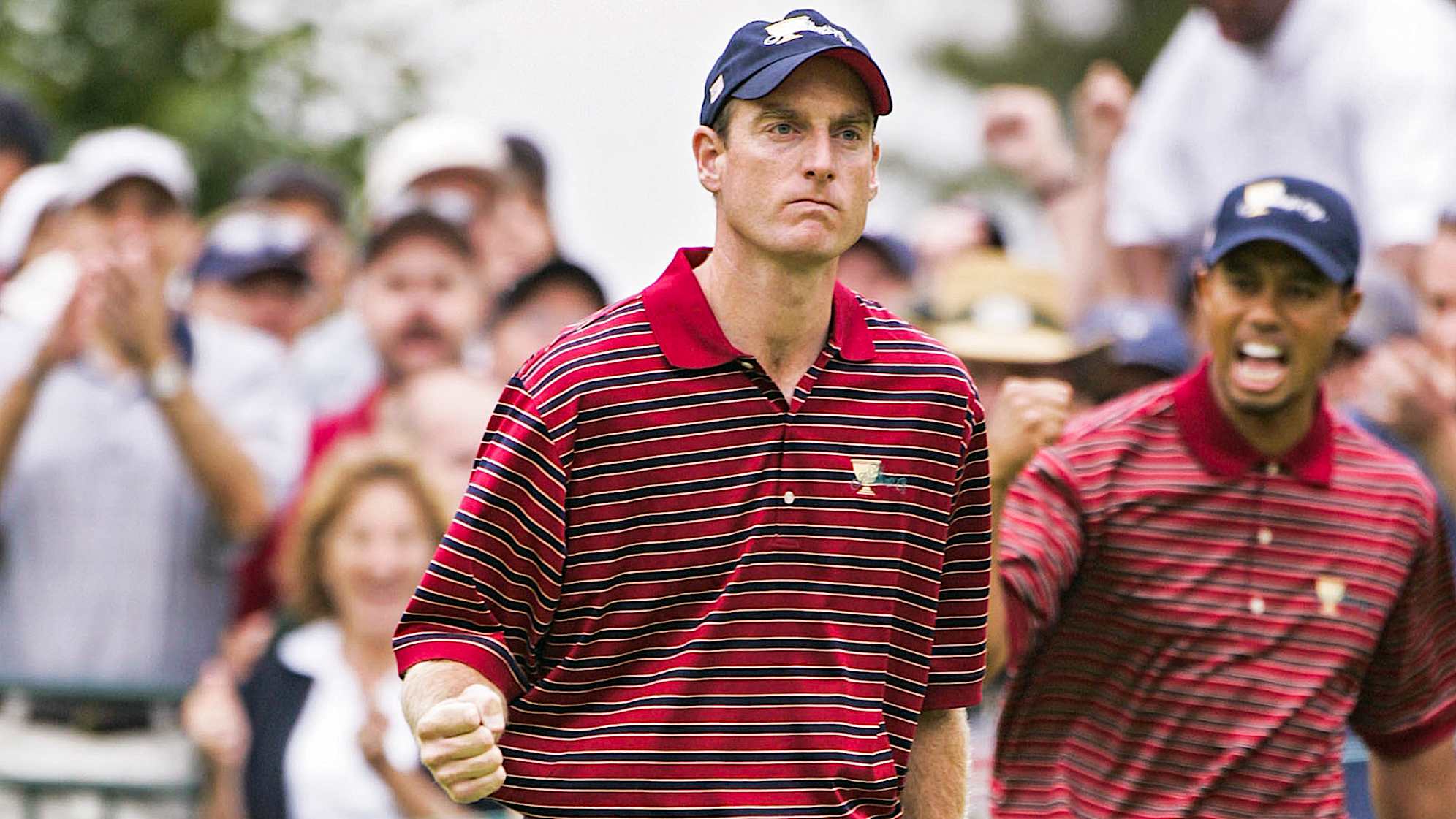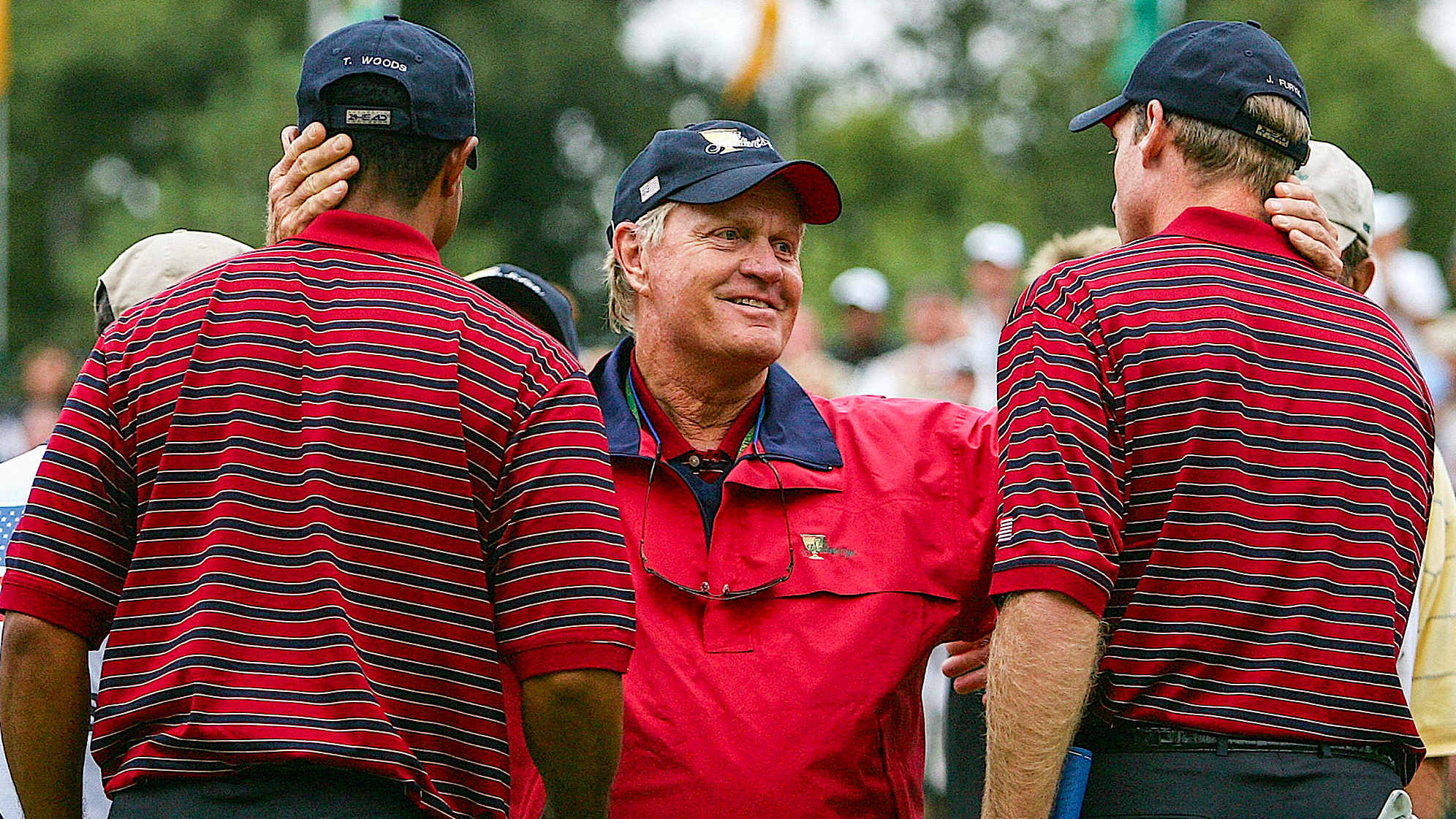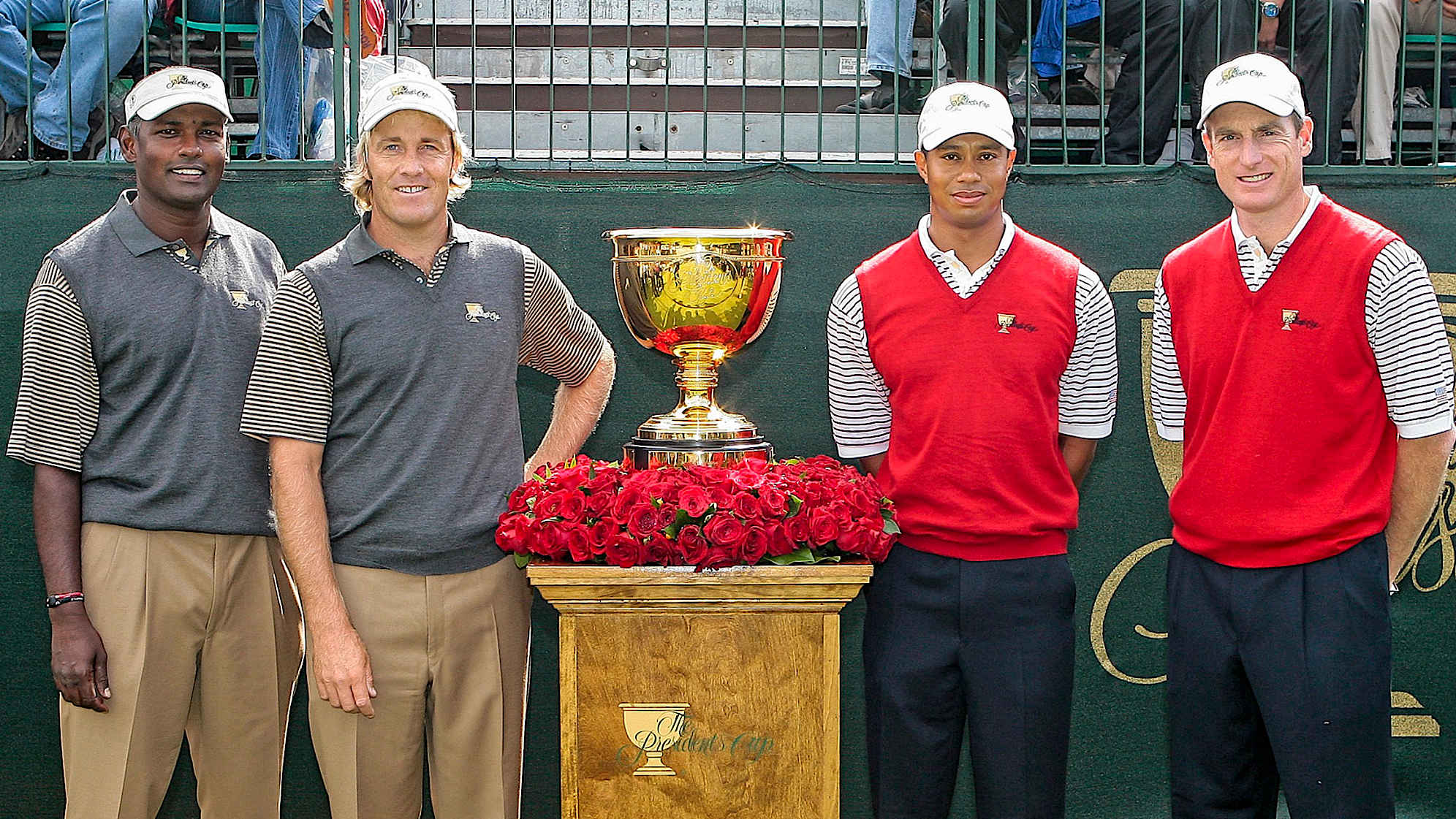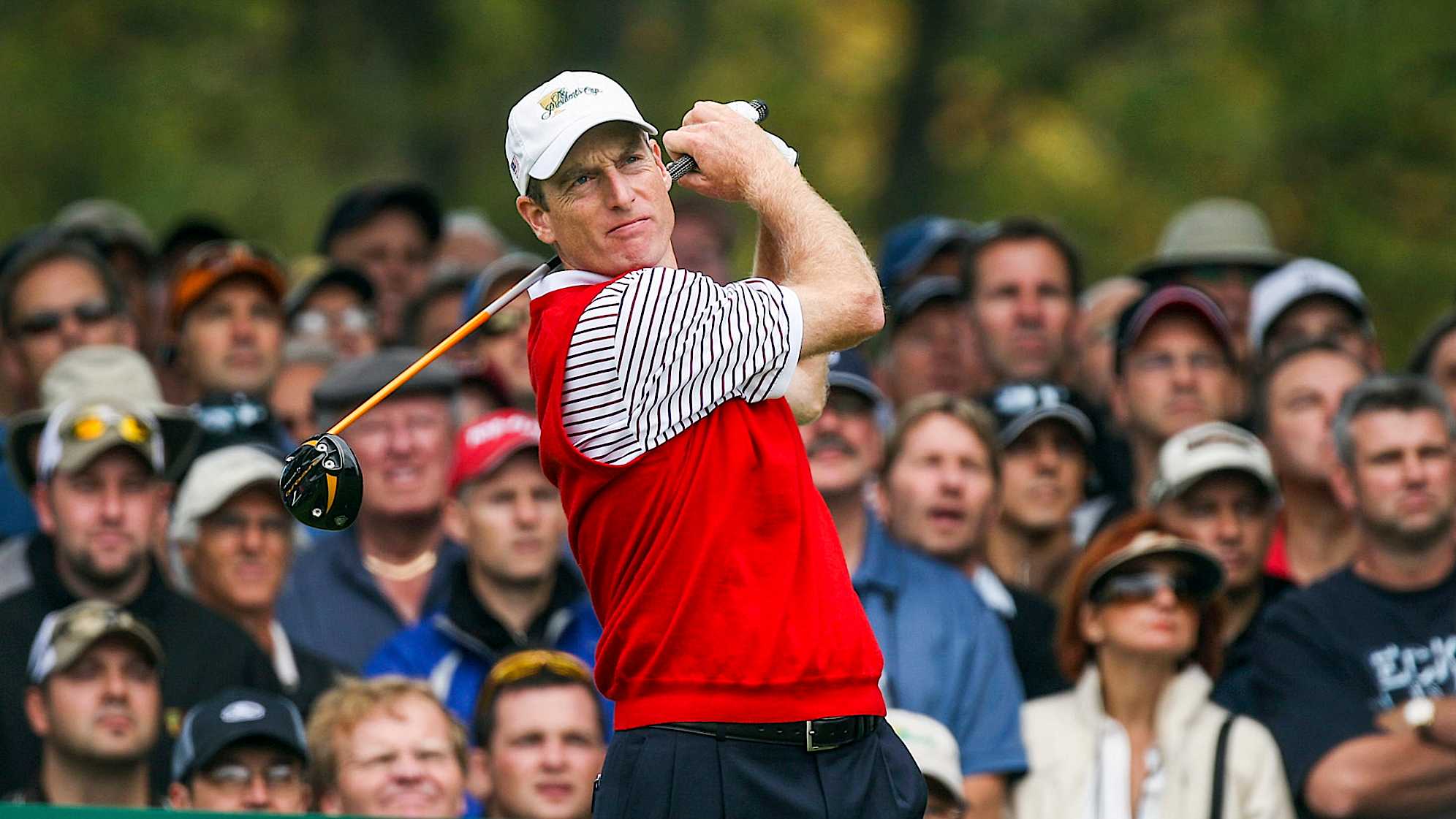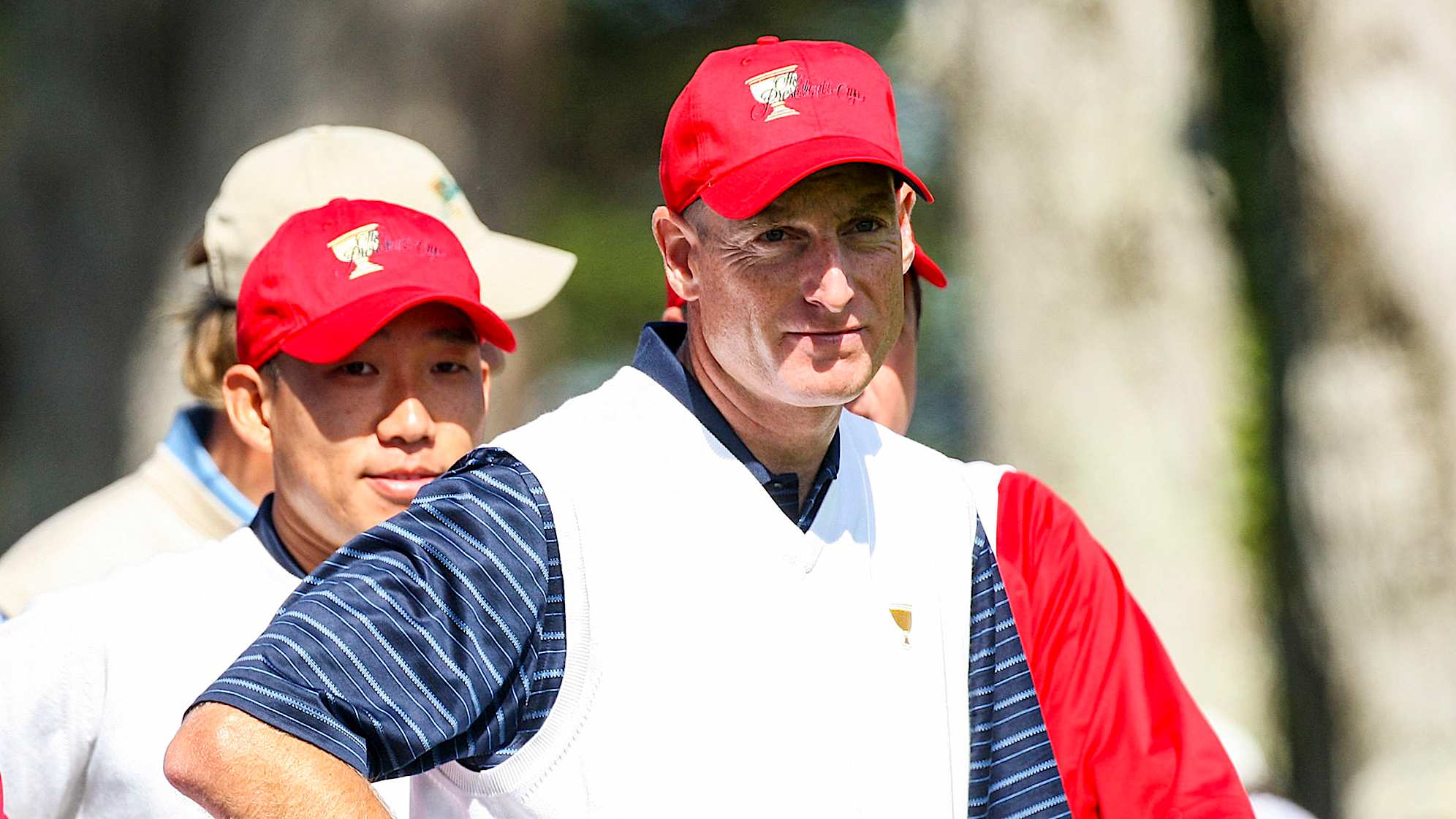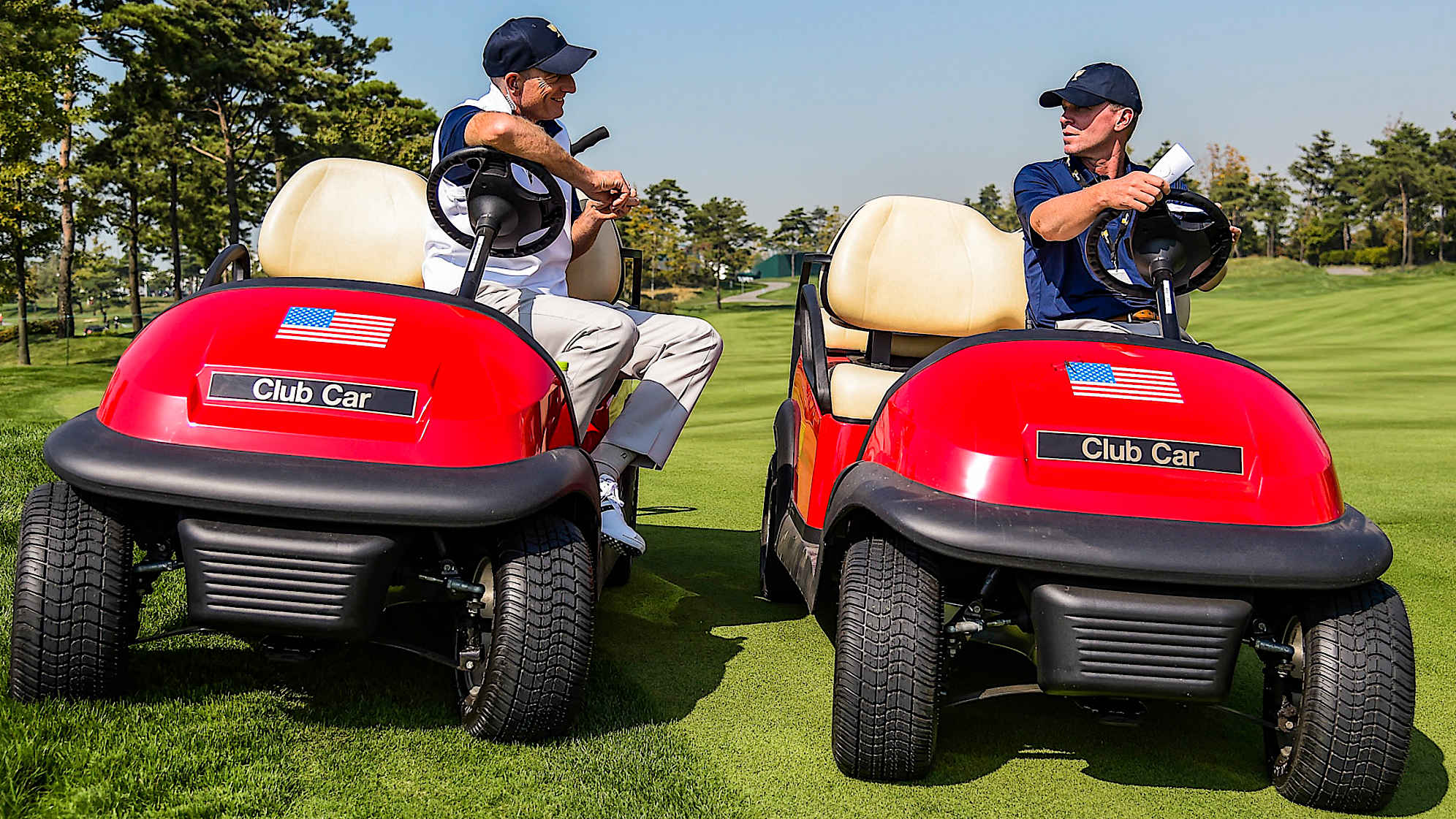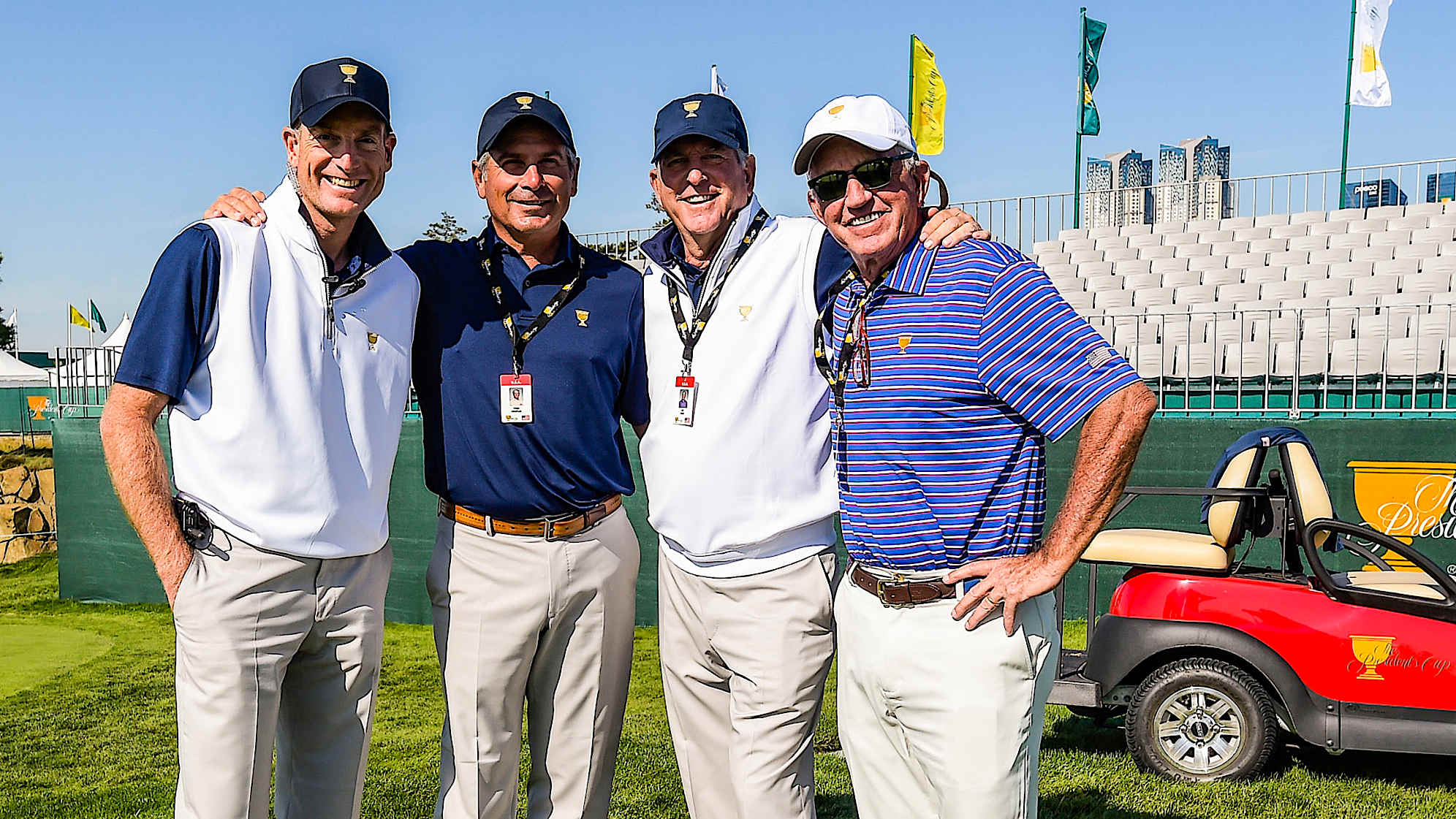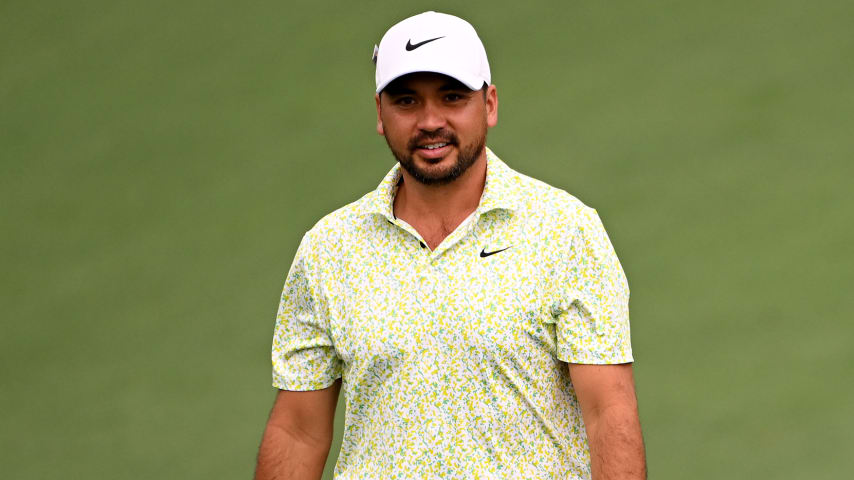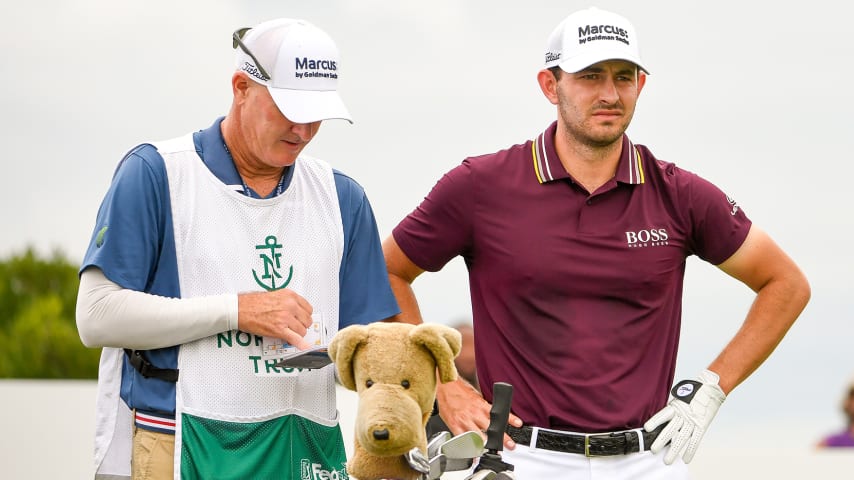Newly announced U.S. Team Captain Jim Furyk reminisces about Presidents Cup
8 Min Read

Will lead American side into 2024 matches at Royal Montreal
Written by Cameron Morfit
Will lead American side into 2024 matches at Royal Montreal
Jim Furyk was announced at the next U.S. Presidents Cup captain today and will become the 10th to serve in that capacity at The Royal Montreal Golf Club, Sept. 24-29, 2024.
Furyk and the powerhouse U.S. squad, which is coming off a 17.5-12.5 victory that was closer than the final score indicated at Quail Hollow last year, will take on an International Team led by Mike Weir, whose captaincy was announced in November.
Coincidentally, the two were both born on the same day, May 12, 1970. And while they stand on opposite sides of the ball, they would seem to share similar traits as players: gritty competitors, hard workers, crafty and efficient players who got the most out of what they had.

Jim Furyk named U.S. Team Captain for 2024 Presidents Cup
“I’d agree with that,” Furyk said. “I’m sure Mike would say that he left some wins out there. I got a lot out of my game but there were a lot of tournaments I feel I could have and should have won. You remember those more than the wins sometimes. As players we’re greedy.”
Weir, who beat Tiger Woods in Singles the last time the Presidents Cup came to Royal Montreal in 2007, is Canada’s favorite son. But Furyk, too, has felt the love from the devoted sports fans north of the border, having twice won the RBC Canadian Open. PGATOUR.COM caught up with the new U.S. captain to talk about his long and illustrious Presidents Cup record, his game these days, and why he learned more in his two assistant captaincies under Jay Haas (2015) and Steve Stricker (2017) than the seven times he played in the biennial event.
You played in seven Presidents Cups, going 20-10-3. That’s a lot of matches. Any stand out?
The most exciting Presidents Cup ever was the draw (in 2003), which is weird to say, since it was a tie. I played Mike Weir in singles, which is ironic that we’re talking about it now, and we went first out, the only time I ever went first or even early in the lineup that I remember. Jack (Nicklaus, the U.S. Team Captain) happened to be by 17 when we finished (Furyk won, 3 and 1), and I handed my bag to my caddie, and Jack said, ‘Hey, hop in the cart. Let’s go follow such-and-such.’ And I spent the next two-and-a-half hours in the cart with him, watching golf, hearing his perspective, listening to him break down matches. That’s a memory I’ll always have.
You played for the U.S. when it won at Royal Montreal in 2007, going 3-2 and posting a couple wins with Tiger Woods as your partner. What do you remember most from that week?
The fans. By the time we got to Singles matches we were pretty far ahead, but the noise and the exuberance on Sunday, having Weirsy playing Tiger, it was big. Montreal is a wonderful city, and I’d have wanted to explore it more. I know we’ll be up there for media, so I hope I do this time around. I played a couple Canadian Opens up there, once in the late '90s before the renovation, I think Steve Jones won, and once on the present golf course and finished second to Tim Clark.
What kind of reception do you expect to receive there this time around, and will you be expecting many fans from the Northeast or elsewhere to make the trip north?
I would love for that to happen. We want to see some red, white and blue, but it’s an away game. I expect Canadian fans and the international fans to be cheering on their team. That’s part of being on the road. I think it’s fun both ways. I enjoy being at home but sometimes it’s fun being on the road, too, and playing the villain. The Canadian sports fans are so devout. They love their golf, they love their sport, so I expect great fans, that’s what I expect.
You had a lot of partners in the Presidents Cup and even more in nine Ryder Cup appearances. Did any of them say anything that broke the tension, or do anything particularly memorable?
My blessing or curse was I could fit along with a lot of people from a personality or game standpoint. I think one of the reasons I switched partners a lot is because of that ability to do so. A good partnership, you’re worried about the other guy as well as yourself – when do they need a pat on the back, some pumping up, some support, a well-timed comment.
What did you learn from playing in all those Presidents Cups?
I think playing in an event and captaining an event are two totally different things. I actually qualified for the Korea Presidents Cup (in 2015) and was hurt and couldn’t play; Jay brought me in as an assistant captain, which was really cool of him. The time serving as an assistant captain was a lot more educational than the times when I was a player.
What did you learn from Haas and then Stricker in 2017?
Every captain’s got to have their own personality. A lot of those guys on the team know you very well. I’m not a rah, rah type of guy, and if I acted like that, the guys would look at me funny. I kind of lead more by example. The Presidents Cup is unique in the pairings and matching up the pairings against each other; you don’t see that in the Ryder Cup, where it’s blind and the captains just fill out their card and hand it in, and seeing that firsthand was important in Korea and Liberty National. As players we always tried to figure out: Did my captain match me up against this guy or did their captain match them up against me? Players get a little chip on their shoulder about that stuff. Oh, really? Their captain thinks that guy can beat me?
You captained the 2018 U.S. Ryder Cup Team that lost in France, 17.5-10.5. It was even more lopsided in the U.S. Team’s favor at the 2021 Ryder Cup (19-9) in Wisconsin, and pretty lopsided for the U.S. Team at the 2022 Presidents Cup (17.5-12.5) at Quail Hollow. Why is it so hard for the visiting team to win, and do you regret not getting a home game?
I don’t. It would be disrespectful to say I regret being the captain of one of these teams. It’s an amazing honor and opportunity. I was excited in 2018 and I’m excited this time. In the Ryder Cup, one of biggest responsibilities as the home captain is setting up the golf course. In Europe they’re setting it up like on their tour, and where they’ve played golf events. That’s one reason why it’s more difficult. Not as much in the Presidents Cup because it’s set up by the PGA TOUR. I think the crowd has a lot to do with it. The International Presidents Cup teams that have had success – the tie, the win – that all came on the other side, and they had great support.
It wasn’t that long ago that the powers that be circled the wagons and created the Ryder Cup task force and began thinking more deeply about how to build quality teams. Do you feel that’s created continuity and momentum for both events?
I was happy to be on the task force and talk about what we were planning on in the future. If you look back, we kind of dropped the ball a bit as players a few times, but we’ve done a better job in the Ryder Cup, winning at home. I think the carryover into the Presidents Cup is positive because the captains have tried to keep the continuity from year to year, some partnerships to choose from, the play-calling hasn’t changed. That structure has helped, but at the end of the day we have a very, very talented group of players in the U.S., and I don’t think any captain of a winning Ryder Cup or Presidents Cup team would take the credit for it.
You’re the only guy to shoot a 58 and a 59; won the U.S. Open; won the FedExCup; and racked up 17 wins, 31 runner-up finishes, and 17 thirds. But you’ll turn 53 on May 12. On the right course, if you got hot, could you still win on the PGA TOUR?
Oh, boy. Ummm – my game is not in the shape that I’d like it to be, so it makes me nervous to give you an answer right this second, but in the right week, on the right course, I think I could. The moon and the stars would have to align, and I don’t hit the ball very far, so it would have to be a short golf course. I’m in the right place on PGA TOUR Champions, though, and I still enjoy the process of working on my game and trying to get better.
What do you remember about winning back-to-back RBC Canadian Opens in 2006 and ’07, and do you think Mike would take those in exchange for his green jacket?
(Laughs) What I saw from Mike is there was a lot of pressure on him; he carried that torch. We saw it as players from the U.S. There are more Canadian players now and he had a lot to do with that. Winning a Masters is obviously amazing, and we were able to win our major championships the same year. I’ve always been treated really well in Canada; when I won those Canadian Opens I sort of felt like an adopted son. Maybe not in September of 2024, though.





